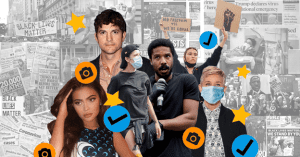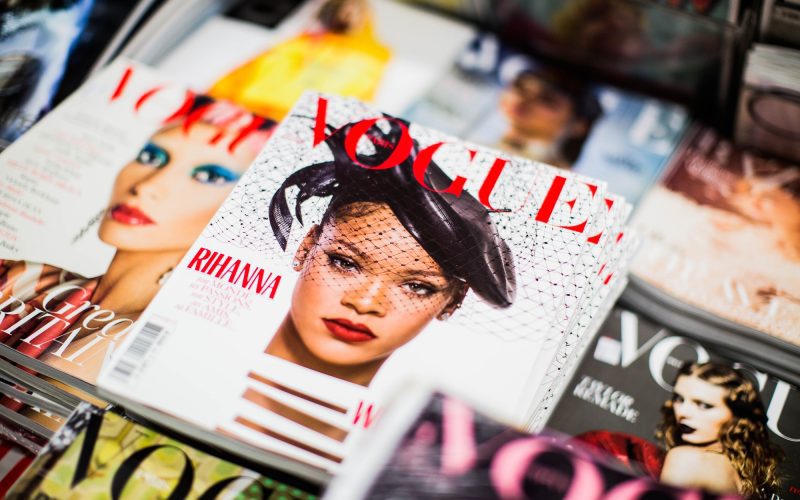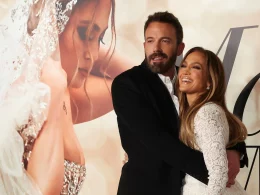Introduction
In recent decades, the intersection of celebrity culture and social movements has become increasingly prominent. Celebrities, with their vast followings and media presence, have the power to bring attention to social issues, mobilize supporters, and even influence policy changes. This article delves into the multifaceted relationship between celebrity culture and social movements, exploring how celebrities can both positively and negatively impact these movements.
The Rise of Celebrity Culture

- Historical Context
The phenomenon of celebrity culture is not new. From the early days of Hollywood to the rise of social media influencers, the public has always been fascinated by the lives of the rich and famous. However, the role of celebrities in social movements has evolved significantly over time.
- The Role of Media
The media plays a crucial role in shaping celebrity culture. Traditional media outlets, such as newspapers, magazines, and television, have historically been the primary platforms for celebrities to reach the public. With the advent of the internet and social media, celebrities now have direct access to their audiences, allowing them to communicate their views and support for social causes more effectively.
Celebrities as Catalysts for Social Change

- Raising Awareness
One of the most significant ways celebrities influence social movements is by raising awareness. When a well-known figure speaks out about a particular issue, it can quickly gain widespread attention. For instance, when actress Emma Watson delivered her speech on gender equality at the United Nations, it garnered global media coverage and brought the HeForShe campaign into the spotlight.
- Mobilizing Support
Celebrities can also mobilize their followers to take action. This can range from encouraging fans to participate in protests to donating to specific causes. The power of celebrity endorsements can lead to increased participation and funding for social movements. For example, singer Beyoncé’s support for the Black Lives Matter movement has inspired many of her fans to become more actively involved in the fight against racial injustice.
- Influencing Policy
In some cases, celebrities can influence policy changes. Their high-profile status can grant them access to policymakers and decision-makers. For instance, actor Leonardo DiCaprio’s advocacy for environmental issues has seen him speaking at the United Nations and meeting with world leaders to discuss climate change policies.
The Double-Edged Sword of Celebrity Involvement

- The Benefits
While the involvement of celebrities in social movements can bring numerous benefits, it is not without its drawbacks. The most apparent advantage is the increased visibility and awareness that celebrities can bring to a cause. Their influence can also lead to a more significant number of supporters and increased funding for social movements.
- The Drawbacks
However, the involvement of celebrities can also have negative consequences. One major concern is the potential for “slacktivism,” where individuals engage in minimal effort actions, such as liking a post or sharing a tweet, rather than participating in more meaningful activism. Additionally, the focus on celebrity involvement can sometimes overshadow the core issues and the work of grassroots activists who have been dedicated to the cause for years.
- Authenticity and Credibility
Another critical issue is the authenticity and credibility of celebrity endorsements. When celebrities support a cause, it is essential that their involvement is genuine and not merely a publicity stunt. If the public perceives their support as insincere, it can damage the credibility of the social movement and lead to skepticism among potential supporters.
Case Studies
- MeToo Movement
The MeToo movement, which aims to combat sexual harassment and assault, gained significant momentum due to the involvement of celebrities. High-profile figures such as Alyssa Milano and Ashley Judd used their platforms to share their experiences and encourage others to do the same. Their involvement helped to bring the issue to the forefront of public discourse and led to tangible changes in workplace policies and legislation.
- Climate Change Advocacy
Celebrities like Greta Thunberg and Leonardo DiCaprio have been at the forefront of climate change advocacy. Their efforts have helped to raise awareness about the urgency of the issue and have inspired many to take action. Thunberg’s speeches and activism, in particular, have galvanized a global youth movement demanding more significant efforts to combat climate change.
- Black Lives Matter
The Black Lives Matter movement has seen substantial support from celebrities across various industries. Figures like Colin Kaepernick, who took a knee during the national anthem to protest police brutality, and musicians like Kendrick Lamar, whose songs address racial inequality, have played crucial roles in bringing attention to the movement. Their involvement has helped to amplify the voices of those affected by racial injustice and has led to increased public support for the cause.
Conclusion
The influence of celebrity culture on social movements is a complex and multifaceted phenomenon. While celebrities can undoubtedly bring attention, support, and resources to social causes, their involvement also comes with potential pitfalls. It is crucial for both celebrities and social movements to navigate this relationship carefully to ensure that the focus remains on the core issues and that the efforts lead to meaningful and lasting change.
In conclusion, the intersection of celebrity culture and social movements presents both opportunities and challenges. As society continues to evolve, it is essential to critically examine the role of celebrities in activism and strive to harness their influence for the greater good.












